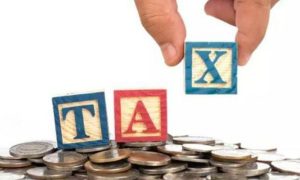The Union Budget 2023-24 may not offer much to individuals in terms of tax benefits and deductions with discussions underway on whether to maintain status quo on personal income tax rates. According to a source aware of the government’s thinking, the overarching theme of the Budget would instead be on boosting economic growth by facilitating higher investments and continuing the support to small businesses. It would be expected that measures on these lines would have a trickle-down effect and also help sustain the recent momentum in private consumption.
“As such, it is unlikely that any special tax sops would be announced for individual taxpayers,” said the person, noting that tax collections are normalising now. Personal income tax collections, net of refunds, grew 28.1% on year between April and November 2022, against 24.5% growth in corporate income tax collections in the same period.
Read More: Windfall Tax On Crude Oil Likely To Be Reduced Again; Unlikely To Be Nil In Near Term
“There is also a thinking that the current personal income tax regime should be maintained and there should not be any significant changes,” the person said, adding that this could mean that both the personal income tax regimes may continue for at least another year. This is despite the fact that the exemption-free personal income tax regime has still not found many takers. A final decision would be taken closer to the Union Budget, the source said.
The government is focused on sustaining the economic recovery, controlling inflation and managing the fiscal deficit.
This would be the last full Budget of the government before the General Elections in 2024 but a populist Budget may not be possible, given the fiscal constraints.
The Centre is likely raise its budgetary capital expenditure to about Rs 9 trillion in the next fiscal from the Rs 7.5-trillion allocation (including capex loan to states) for 2022-23. Though a sharp increase by historical standards, this will represent a slowing from the pace witnessed in the current fiscal.
Continued support to MSMEs could mean the Emergency Credit Line Guarantee Scheme (ECLGS) introduced as lifeline to the Covid-hit small and medium businesses may be extended beyond March 31, 2023.
The Union Budget 2020-21 introduced a simplified personal income tax regime, where tax rates are significantly lower for individual taxpayers who decide to forego most deductions and exemptions. Less than 1% of the taxpayers who filed returns through the Clear (previously ClearTax) portal have opted for the new regime.
With a view to raise consumption demand, industry chamber CII had suggested putting in place policies such as rationalising income tax slabs and rates for individuals. “It has become an urgent necessity to reduce the personal tax rates for individuals so that there is a degree of equity and fairness in relation to structuring decisions as well as being competitive with other countries. It is suggested that the tax structure for individuals be simplified,” the Bengal Chamber of Commerce had also noted in its pre-Budget memorandum to the finance minister.
In the exemption-free regime, tax is payable on income above Rs 2.5 lakh whereas no tax is payable for income up to Rs 5 lakh in the older scheme if exemptions are availed of. About 75% of annual income tax returns are for annual income below Rs 5 lakh.
Currently, if the total income of a working individual is up to Rs 5 lakh, there is no tax payable by her in both the tax regimes due to a rebate available under Section 87A of the Income Tax Act. But if the income exceeds beyond the threshold, the tax has to be paid on income above Rs 2.5 lakh at the rate of 5% in both the regimes. But the tax liability is nil for most such taxpayers in the older regime as they claim various deductions and exemptions.
In the older regime, some 70-odd deductions and exemptions are allowed such as standard deduction, the exemption for house rent allowance and leave travel allowance (LTA), deductions under Section 80C (for various investments and payments such as tuition fees, principal repayment of housing loan), 80D (for medical insurance/expenses), 80TTA (saving bank interest) or deduction of `2 lakh for housing loan interest to name a few.
The exemption-free regime offers lower tax rates in a graded manner, that is, 5% rate for income of Rs 2.5-5 lakh, 10% for Rs 5-7.5 lakh, 15% for Rs 7.5-10 lakh, 20% for Rs 10-12.5 lakh, 25% for Rs 12.5-15 lakh, and 30% for over `15 lakh. Analysts say the six-slab structure compared with the three in the old regime may have confused people.
In the last Budget, the government not only extended ECLGS scheme till FY23 end but also widened the guarantee cover by Rs 50,000 crore to Rs 5 trillion. Loans of about Rs 3.9 trillion have already been sanctioned under the scheme.





































